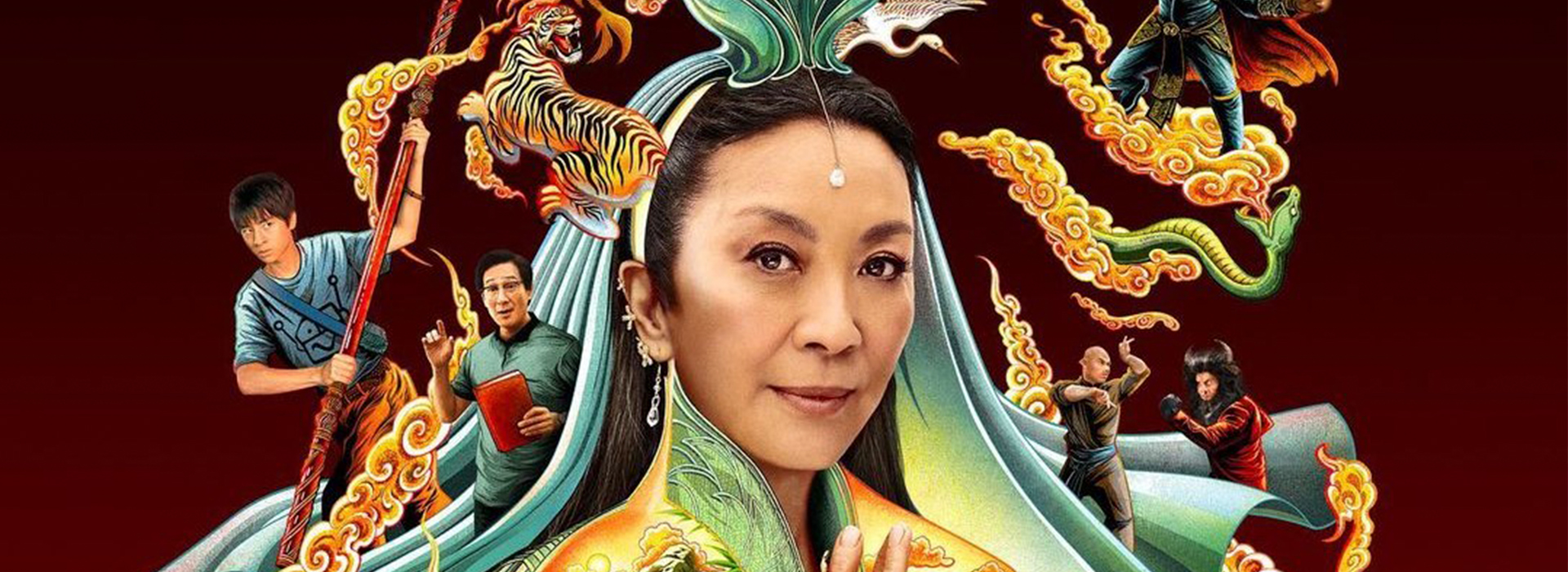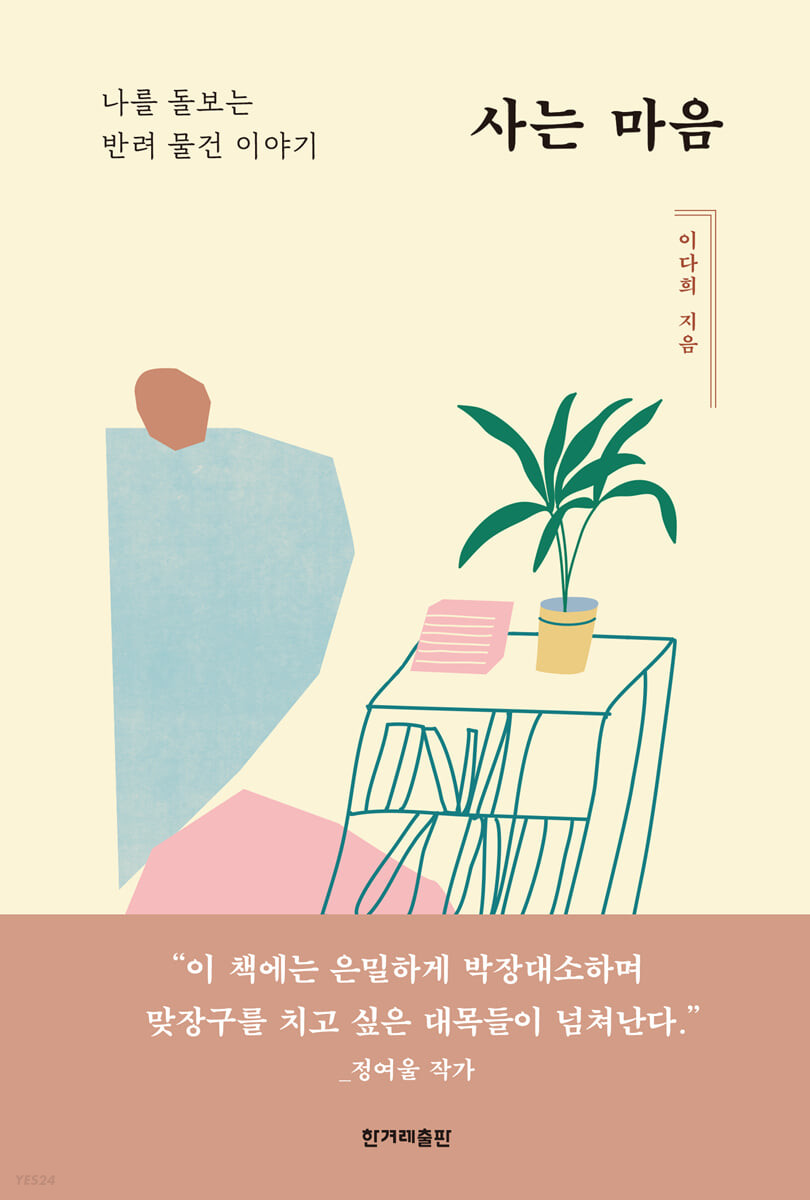
NoW
American Born Chinese: Anyone can save their own world
이 주의 OTT, 영화, 책, 음악
2023.06.09
Credit
Article. Yun Huiseong, Im Sooyeon (CINE21 reporter), Kim Gyeoul (writer)
Design. Jeon Yurim
Photo Credit. Disney +
American Born Chinese (Disney+)
Yun Huiseong: Chinese American Jin (Ben Wang) is an ordinary, yet extraordinary, boy. The teen’s so American that he can’t even speak his parents’ native tongue, but at the same time the world around him is difficult because he’s always seen as “the Chinese kid” just because of the way he looks. The show, which starts with the boy suddenly finding himself joining up with a hero, might sound like the plot for any other adventure story, but American Born Chinese makes it explicitly clear that this is not one boy’s simple fantasy but an important moment for Asians everywhere when that hero’s own story is shown to be interwoven with that of the Monkey King, Sun Wukong. And Sun Wukong’s relevance to the show is more than just another reworking of the well-known character. Like Jin’s parents in the show, Asians are all too familiar with growing up restricted under immense pressure from their own parents and judgmental people all around them, and for them, Sun Wukong—a born outlaw—represents a cathartic path to their hopes and aspirations. Where a typical hero works to secure their hopes and dreams, Sun Wukong achieves greatness by breaking rules and ignoring abstract values. The other main character in the show is Sun Wukong’s son, an ordinary, yet extraordinary, hero who “doesn't know how to give up” and can only be his own person by turning his back on his father’s world.
The two boys, who each had always had to navigate the world on their own, find themselves having to work together, and the force pushing them along is former sitcom actor Jamie (Ke Huy Quan). He has nothing to do with the boys and yet his experience as the butt-of-the-joke token Asian character on TV also makes him the one who can relate to what they’re going through best. For the longest time, he only ever existed on the fringes, but he unleashes the show’s equivalent of an energy wave when he stands up to say he will no longer accept the world casually lumping everyone like him together. His decision to be recognized as an individual, even if it rubs people the wrong way, runs parallel with the message that everyone who’s on a journey is a hero. To put it another way, the series is a collective outcry from a huge collection of mystical material drawn from Eastern culture, from the Bodhisattva Guanyin and beyond, telling us that anyone can rise to the position of hero and save their world—even Asians. Sure, it’s obvious, but it took an awful long time for such an obvious message to make it to the screen.
JAURIM, The Wonderland
Im Sooyeon (CINE21 Reporter): The band Jaurim has created an album with the help of their fans in celebration of their 25th anniversary. Some 660 people applied for an open audition and now 117 Jamong, as the fans call themselves, will be heard singing as a chorus on the upcoming album full of remakes of the group’s most beloved songs. And fans will also be able to watch as Jaurim works up to their 25th-anniversary concert, retraces the trajectory of the past 25 years and opens up about who they are offstage. The new documentary JAURIM, The Wonderland is an honest look at the lives of members Kim Yuna, Lee Sunkyu and Kim Jinman as they work on their celebratory album. The band revisits hits like “Magic carpet ride,” “Hey, Hey, Hey,” “17171771,” “I’m my fan,” “Twenty-five, twenty-one” and more, uncovering the kind of emotional connection that can only exist between artists and fans. The music from the concert was mixed especially for the theater release of the documentary.
The Mind of the Consumer (Lee Dahui)
Kim Gyeoul (Writer): It’s something everyone weighs again and again throughout their life: Should I buy this or not? The scale teeters perilously between “buy” and “hold off,” with reasons to buy and not to buy piling up one by one. And after all that hemming and hawing, the things we end up buying are the ones that we can’t throw away so easily—the things we cherish and hold close for a long time. Writer Lee Dahui wrote down each and every time she went through this process and the outcome each time. Unsurprisingly, the list includes common items: bookcase, teacup, trench coat, desk, dryer, cardboard box, book, chair, shoes, pants, fountain pen, notebook. The book starts with a bookcase left to the author by her father, the late author Lee Yungi, and ends with a car—one that can’t hear her, of course, but that she’s careful with her words in front of nonetheless. She carefully folds up her wedding dress—a symbol of her 20s she spent trapped in the myth that women should be frugal—and throws it away, then pulls out a wig she had bought during a round of chemotherapy to find it a new owner. The way the author writes with her fountain pen about how other people might be jealous of her suggests a particular outlook about the world. Reading what the author wrote about how Smythson-branded notebooks are good for use with fountain pens and are seen as a status symbol and marker of wealth in this world makes me think I should search for one myself—maybe because I too write with a fountain pen. The book openly explores the idea that you are what you buy in a day and age when everyone expresses themselves through their choice of purchases.
“MOJO” (META.)
Kim Yunha (Music Critic): Koreans frequently talk about having “no foundation” in a self-deprecating way. For these people who have had ppali-ppali culture, or the need to do everything quickly, reinforced upon them since birth, they might do things a little slapdash, but they have no shortage of creativity. The same used to be true of their music. It’s been many years since the love of Korean music was restricted to Koreans alone. Loves of Korean pop music were drawn to its slapdash nature, but when they try to dig into the history, it stands before them like a Jenga tower full of holes. The attempt to carry on that legacy—one that was cut short for reasons too numerous to get into—is one of the most interesting and unique chapters in the history of 21st-century Korean music.
“MOJO” is the first song rapper META. has ever put out under his own name. If you’re asking what’s so important about anyone’s first song when, by definition, everyone has one, I suggest you check the name of the artist one more time. “MOJO” is the debut solo song from GARION member MC Meta (if you know anything about Korean hip hop, you’ll recognize GARION as an important first-generation K-rap group). Even more surprising are the names of the people behind the song: It’s produced by early Korean techno pioneer Transistor head, who META. first got his start with in the late 1990s in a famous club in the Hongdae region of Seoul called Masterplan. The song’s also made by Byeongjoo Yoon, who was in rock band Noizegarden back then and who’s now the guitarist for and leader of Lowdown 30. If you think this is just old pals getting back together to goof around, try listening closely to the heavy-as-ever beat, the rapping and the lyrics. That should be enough to change your mind. It’s even more impressive knowing that this track is just a taste of what’s to come from META.’s upcoming first solo album. He’s back, and he’s here to fill in the gaps in the forgotten history of Korean pop music and carry on the legacy.
Copyright © Weverse Magazine. All rights reserved.
Unauthorized reproduction and distribution prohibited.
Unauthorized reproduction and distribution prohibited.
